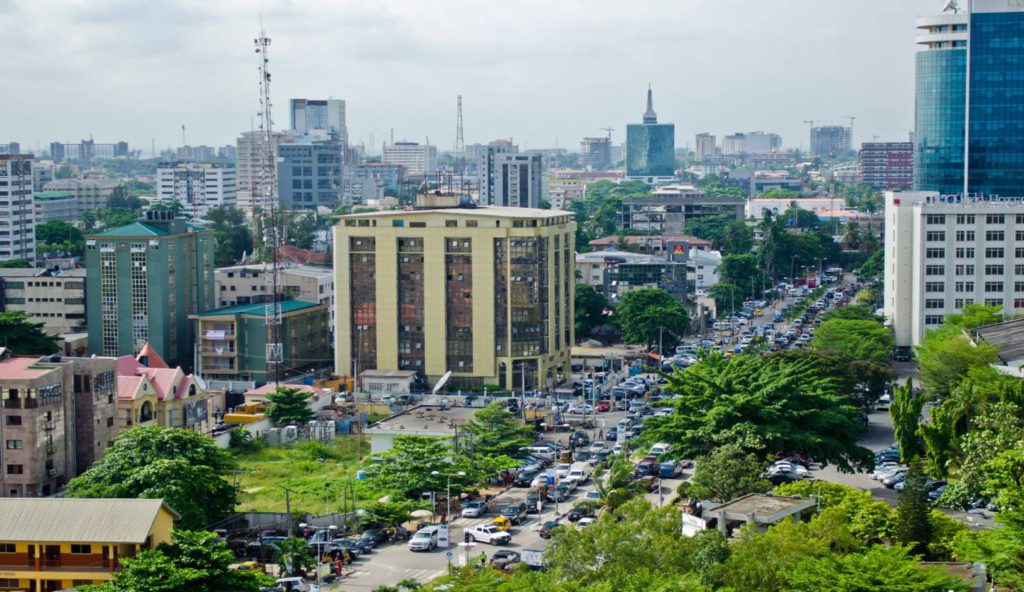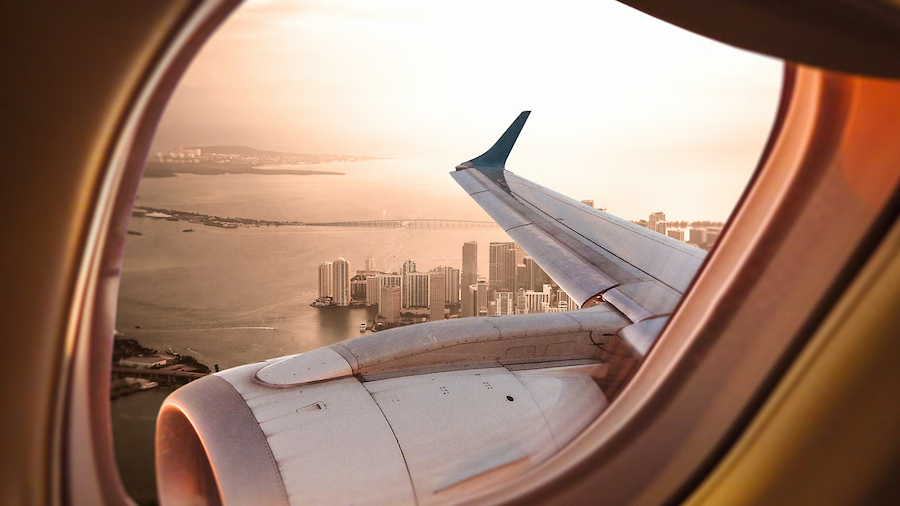Tips
Top 5 African Cities Leading the Business Travel Space in 2025

Business travel across Africa is evolving rapidly, driven by cities that blend economic strength with growing infrastructure and connectivity. These urban centres are not only economic engines but also gateways to emerging markets, offering you access to thriving industries and multinational corporations. These top African cities leading the business travel space in 2025 are key destinations where commerce, innovation, and opportunity converge.
This guide will highlight the cities that offer the most promising environments for business travel, helping you prioritise your destinations with clarity and confidence.
Key Takeaways
- Economic Hubs: These cities are Africa’s strongest centers for business growth, offering access to diverse industries and multinational corporations.
- Strategic Advantages: Each city provides unique strengths in finance, technology, or regional connectivity.
- Balanced Experience: Combining robust business environments with rich cultural and leisure opportunities enhances productivity and enjoyment.
1. Lagos, Nigeria: Commercial Powerhouse
Lagos, Nigeria’s economic engine, offers a dynamic environment where business opportunities meet a vibrant urban lifestyle.
Economic Strengths
- Business Hubs: Victoria Island, Ikoyi, and Lagos Mainland host multinational corporations, financial institutions, and tech startups.
- Economic Scale: With a GDP exceeding $259 billion in 2023, Lagos is Africa’s second-largest city economy.
- Innovation Centers: Spaces like Giwa Gardens and Pitstop Lagos provide coworking and event venues for entrepreneurs.
Infrastructure and Connectivity
- Transport Links: Extensive road networks and ride-sharing services ensure efficient mobility.
- Business Facilities: Modern office spaces and reliable digital infrastructure support seamless operations.
- Investment Climate: Ongoing infrastructure development and regulatory reforms attract investors despite economic challenges.
Lifestyle and Attractions
- Cultural Heritage: The National Museum Lagos and Lekki Conservation Centre offer cultural and natural retreats.
- Social Scene: Venues like Escape Room33 and City Vibe provide trendy cafes, bars, and team-building experiences.
- Vibrant Lifestyle: Frequent cultural festivals, live performances, and nightlife enhance networking opportunities.
2. Cape Town, South Africa: Innovation and Inspiration
Cape Town blends economic dynamism with cultural and natural attractions, making it a premier destination for business travelers in 2025.
Economic Strengths
- Key Sectors: Finance, technology, and creative industries drive Cape Town’s economy, with a focus on fintech and sustainable solutions.
- Innovation Ecosystem: Home to multinational corporations and startups, supported by tech parks and incubators fostering collaboration.
- Business Appeal: A regional hub with government-backed entrepreneurship initiatives, ideal for accessing emerging markets.
Infrastructure and Connectivity
- Cape Town International Airport: Offers direct flights to major global cities, ensuring seamless travel.
- Business Facilities: Modern office spaces, coworking hubs, and reliable internet support productivity.
- Transport Options: Efficient road networks, ride-sharing, and car hire services optimize mobility.
Lifestyle and Attractions
- Iconic Sites: Table Mountain, Cape Point Nature Reserve, and Boulders Beach (home to African penguins) offer relaxation and informal meeting spaces.
- Culinary Scene: Time Out Market features top local chefs, perfect for networking or client hospitality.
- Nightlife: Vibrant bars, live music venues, and beachfront restaurants foster professional and social connections.
- Leisure: Durbanville Wine Valley provides a scenic retreat for wine tasting and client entertainment.
3. Marrakech, Morocco: Culture Meets Commerce
Marrakech combines economic growth with a rich cultural scene, making it a unique destination for business and leisure.
Economic Strengths
- Strategic Role: A key hub for finance, trade, and emerging tech, supported by over 1,200 business-related social media posts from 2022–2024.
- Investment Growth: High-speed rail and enhanced airport facilities bolster connectivity for conferences and commerce.
- Business Appeal: Traditional markets and modern commercial zones create a dynamic environment.
Infrastructure and Connectivity
- Transport Upgrades: High-speed rail and Marrakech Menara Airport improve access to regional and global markets.
- Business Facilities: Well-equipped venues for meetings and conventions cater to professionals.
- Urban Mobility: Efficient transport options ensure easy navigation across the city.
Lifestyle and Attractions
- Cultural Events: The 1-54 Contemporary African Art Fair and Marrakech Film Festival foster global connections.
- Culinary Excellence: Restaurants offer Moroccan tagines, couscous, and international cuisines for business dining.
- Hospitality: From riads to luxury hotels, accommodations meet diverse traveler needs.
4. Casablanca, Morocco: Financial and Transport Hub
Casablanca’s robust financial sector and strategic connectivity make it a cornerstone for business travel in Africa.
Economic Strengths
- Casablanca Finance City (CFC): Africa’s leading financial hub, hosting over 225 companies from 115 countries.
- Investment Appeal: Tax incentives and political support attract banks, insurers, and startups.
- Market Access: A gateway to Africa’s growing middle class, supported by a stable regulatory framework.
Infrastructure and Connectivity
- Mohammed V International Airport: Links Africa, Europe, and the Middle East with frequent flights.
- Port of Casablanca: One of the largest artificial ports globally, supporting maritime logistics.
- Urban Transport: Tramways and highways enhance mobility within the city.
Lifestyle and Attractions
- Cultural Blend: Colonial architecture and modern skyscrapers create a vibrant urban environment.
- Leisure Options: Green spaces, dining, and cultural sites balance work and relaxation.
- Urban Renewal: Sustainable development projects enhance livability for business travelers.
5. Johannesburg, South Africa: Business and Innovation Capital
Johannesburg’s economic strength and startup ecosystem position it as a top destination for business travelers seeking opportunity.
Economic Strengths
- Economic Powerhouse: Hosts headquarters for finance, telecommunications, and energy companies.
- Startup Ecosystem: Growing investment in fintech, healthtech, and logistics startups, supported by accelerators.
- Business Appeal: High business-friendliness scores and a gateway for multinationals entering Africa.
Infrastructure and Connectivity
- Transport Links: Efficient airports and road networks support frequent travelers.
- Business Facilities: Coworking spaces like Workshop17 and modern conference venues foster collaboration.
- Talent Pool: Top universities and innovation hubs provide access to skilled professionals.
Lifestyle and Attractions
- Urban Lifestyle: Diverse dining, nightlife, and cultural events enhance networking opportunities.
- Innovation Hubs: Success stories in fintech and transport solutions reflect the city’s dynamic ecosystem.
- Leisure Spaces: Green spaces and modern amenities create a balanced environment for work and relaxation.
Key Criteria for Selecting Business Travel Hubs in Africa
Choosing the right business travel destination in Africa depends on several concrete factors. You want a city that offers robust economic connections, efficient infrastructure, an attractive urban environment, and a business-friendly climate. These elements combine to support your professional goals and comfort during your stay.
Economic Growth and Connectivity
Economic strength is a fundamental reason to select a particular African city for business travel. Cities like Lagos and Nairobi stand out due to their expanding markets and diverse industries, from finance to technology. The presence of multinational companies, active stock exchanges, and dynamic start-up ecosystems indicates a city’s vibrancy and capacity for business growth.
Connectivity also plays a vital role. You need efficient air links with international hubs, easy access to regional markets, and robust digital infrastructure. Well-connected cities enable quick movement of people and information, crucial for meetings, networking, and deal-making.
Urban Development and Infrastructure
Modern infrastructure is essential for a smooth business trip. This encompasses not only airports and transportation but also quality office spaces, convention centres, and accommodations. Cities like Casablanca and Cape Town have invested heavily in these areas, making them dependable hubs for conferences and corporate events.
Investments in urban development extend to utilities and communication networks. Reliable electricity, internet speed, and transport systems reduce travel friction and support your productivity. A well-developed urban setting also ensures safety and ease of movement, allowing you to focus on your business objectives without logistical stress.
Quality of Life and City Vibe
Your experience goes beyond meetings and deals. The quality of life in a city influences how productive and comfortable your trip will be. You want access to good healthcare, dining, leisure, and cultural activities. Cities such as Marrakech offer a balance of modern amenities with rich cultural heritage, enhancing your overall stay.
The city vibe can affect your mood and ability to network informally. Vibrant urban living with lively social scenes, green spaces, and diverse communities helps you connect with locals and fellow travellers. Finding a city known among the best cities in the world for lifestyle can make your business trip more enjoyable and sustainable.
Business-Friendly Environments
A business-friendly environment is crucial for efficiency and success. Look for cities where government policies support foreign investment, ease company registration, and provide legal protections. Nairobi and Johannesburg both show strong regulatory frameworks and business support services, attracting international firms.
You should also consider city-specific initiatives, such as tax incentives, incubator programmes, and professional networks. These foster innovation and lower barriers to entry. Such environments allow you to pursue your ambitions with less administrative burden and more local resources at hand.
Future Trends of African Business Travel
Sustainability and Smart Urban Development
You will notice that African cities are prioritising eco-friendly infrastructure and green building projects. This approach reduces environmental impact while enhancing the liveability of urban areas for business travellers and residents alike.
Initiatives include expanding renewable energy use, improving public transport, and eco-efficient office spaces in cities like Nairobi and Cape Town. These changes lower carbon footprints and create healthier environments, which can benefit your productivity and well-being during business stays.
Smart city technologies, such as connected traffic management and waste reduction systems, are becoming common. These developments not only support sustainable urban living but also streamline logistics for corporate travel, improving your overall experience in busy metropolitan areas.
Digital Innovation and Start-Up Growth
African business travel is increasingly influenced by digital platforms that simplify trip planning and expense management. Tools like AI-driven booking systems and integrated travel expense apps help you save time and reduce errors.
Cities like Lagos and Johannesburg are becoming hubs for tech start-ups focusing on travel and hospitality solutions. This ecosystem supports services that cater specifically to corporate travellers’ needs, such as real-time itinerary updates and personalised recommendations.
The growing tech adoption also extends to virtual meetings and hybrid conferences. You can leverage these technologies to reduce unnecessary travel while maintaining strong business connections, making your travel more efficient and targeted.
Expanding International Connectivity
You will find that African cities are enhancing their international flight networks to improve global accessibility. Airports in Addis Ababa, Casablanca, and Cape Town have seen investments increasing direct flights to major business centres worldwide.
These improvements reduce travel time and make it easier for you to reach important markets across Europe, Asia, and the Americas. Frequent and reliable connections support smoother scheduling for business trips and open new opportunities for regional partnerships.
Additionally, airlines in Africa are upgrading their services with modern aircraft and business-class options. This enhances comfort during long-haul flights, allowing you to arrive better rested and ready for your engagements.




